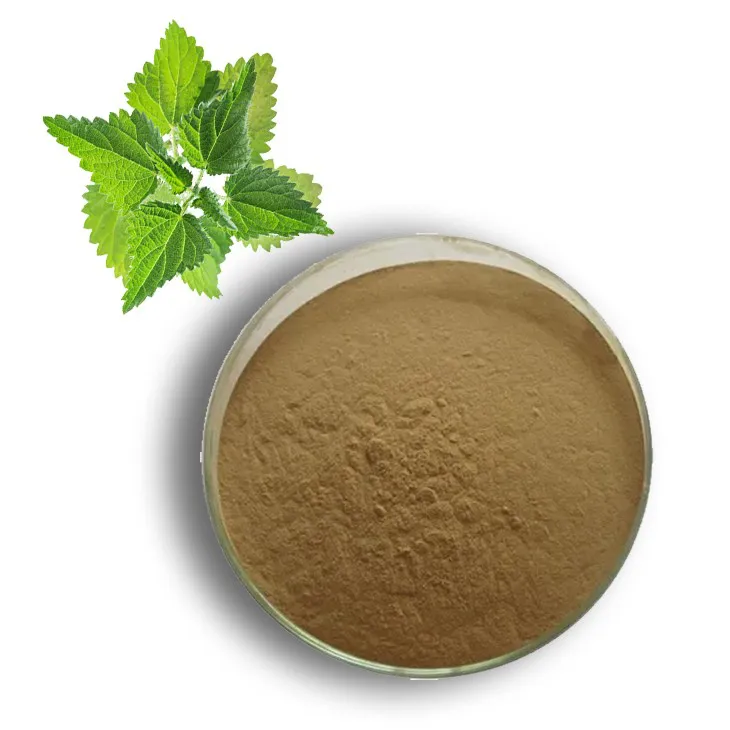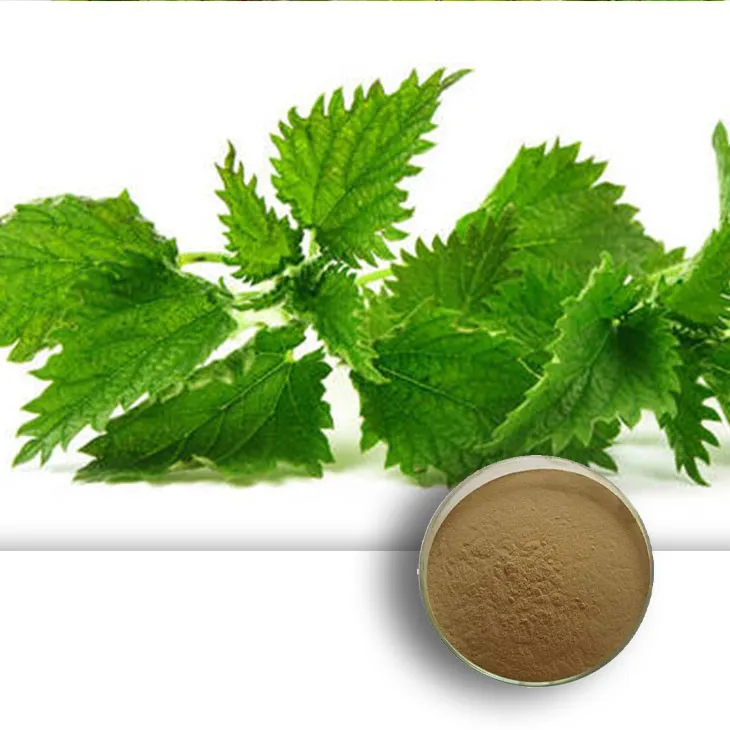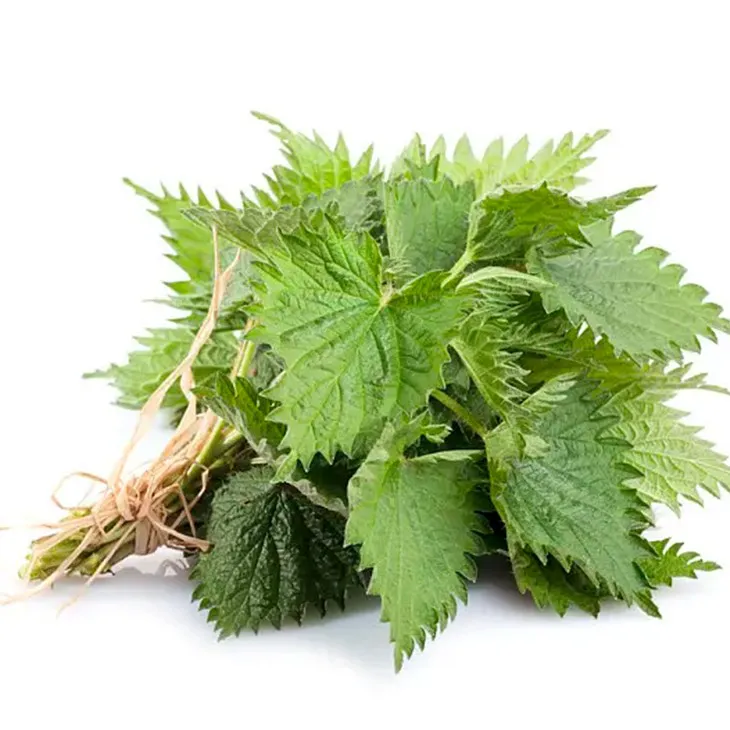- 0086-571-85302990
- sales@greenskybio.com
Chinese Nettle Leaf Extract Factory.
2024-12-01

Introduction to Nettle Leaf in China
The nettle leaf has a long - standing presence in China, with a rich history of use. It has been an integral part of traditional Chinese knowledge for centuries. This plant is not only abundant in nature but also holds a great deal of potential in various fields. In Chinese traditional medicine, it has been used for treating certain ailments, which shows its unique properties from a historical perspective.

The Role of Chinese Nettle leaf extract Factories
Chinese Nettle leaf extract factories play a crucial role in the utilization of nettle leaves. They are at the forefront of natural extract production in the country. These factories serve as a bridge between the natural resource of nettle leaves and various industries that can benefit from its extracts.

Combination of Traditional Knowledge and Modern Technology
Traditional Knowledge
Traditional knowledge about nettle leaves provides a foundation for these factories. This knowledge includes understanding the growth patterns of nettle plants, the best time for harvesting, and the parts of the plant that are most suitable for extraction. For example, traditional knowledge might dictate that younger nettle leaves are more potent for certain types of extraction. This knowledge has been passed down through generations and is now being integrated into modern extraction processes.
Modern Technology
Modern technology is also a key factor in the success of these factories. Advanced extraction techniques such as supercritical fluid extraction, ultrasonic - assisted extraction, and microwave - assisted extraction are being used. These technologies allow for more efficient extraction of valuable substances from nettle leaves. For instance, supercritical fluid extraction can precisely target and extract specific compounds without causing damage to other components of the extract. This results in a higher - quality product with more consistent properties.

Applications of Nettle leaf extract
In the Agricultural Sector
Nettle leaf extract has significant potential in the agricultural sector. It can potentially be used as a natural pesticide. Nettle extracts contain certain compounds that can repel or inhibit the growth of pests. This provides an alternative to chemical pesticides, which are often associated with environmental and health concerns. Additionally, it can act as a growth enhancer. It may contain nutrients or growth - promoting substances that can stimulate plant growth, improve crop yields, and enhance the overall health of plants.
In the Research Field
In the research field, scientists are exploring the potential of nettle leaf extract in various areas. In biochemistry, researchers are interested in the chemical composition of the extract and how different compounds interact. For example, they are studying the presence of bioactive peptides, phenolic compounds, and other metabolites in nettle leaf extract. In pharmacology, there is a growing interest in the potential medicinal properties of nettle leaf extract. It may have anti - inflammatory, antioxidant, and anti - microbial properties, which could be harnessed for the development of new drugs.
Innovation in Chinese Nettle Leaf Extract Factories
Improving Extraction Efficiency
Chinese nettle leaf extract factories are constantly striving to improve extraction efficiency. They invest in research and development to find new methods and technologies that can increase the yield of valuable substances from nettle leaves. For example, by optimizing the extraction parameters such as temperature, pressure, and extraction time, they can enhance the efficiency of the extraction process. They also explore the use of novel solvents or extraction aids that can improve the solubility of target compounds and thus increase the extraction rate.
Enhancing Product Quality
Product quality is of utmost importance for these factories. To enhance the quality of nettle leaf extract, they implement strict quality control measures at every stage of the production process. This includes sourcing high - quality nettle leaves, ensuring proper storage and handling, and using advanced purification techniques to remove impurities. They also conduct regular quality testing to ensure that the extract meets the required standards in terms of chemical composition, purity, and bioactivity.
Expanding the Range of Applications
These factories are not content with the existing applications of nettle leaf extract. They are actively looking for new ways to expand its range of applications. For example, in the cosmetics industry, they are exploring the use of nettle leaf extract in skincare products due to its potential anti - aging and skin - soothing properties. In the food industry, they are researching the possibility of using nettle leaf extract as a natural food additive for its antioxidant and nutritional properties.
The Global Impact of Chinese Nettle Leaf Extract Factories
Chinese nettle leaf extract factories are making a mark in the global natural extract market. Their high - quality products and innovative approaches are attracting international attention. As the demand for natural products continues to grow worldwide, these factories are well - positioned to meet the international market's needs. They contribute to the global trend of shifting towards more natural and sustainable products by providing nettle leaf extract as a viable alternative in various industries.
Challenges and Future Prospects
Challenges
- One of the main challenges is the standardization of nettle leaf extract production. Different regions may have different quality standards and production methods, which can lead to variations in product quality. This can be a barrier to international trade and market acceptance.
- Another challenge is the competition from synthetic products. Synthetic pesticides and growth enhancers in the agricultural sector, and synthetic drugs in the pharmacology field, are often cheaper and more readily available. Convincing consumers and industries to choose nettle leaf extract over synthetic alternatives can be difficult.
- Raw material supply can also be a concern. Nettle plants are seasonal, and ensuring a stable supply of high - quality nettle leaves throughout the year can be a challenge. This requires proper cultivation and management strategies.
Future Prospects
Despite the challenges, the future prospects for Chinese nettle leaf extract factories are promising. With continued research and development, new applications for nettle leaf extract are likely to be discovered. For example, in the field of biotechnology, nettle leaf extract may find new uses in gene expression regulation or enzyme activity modulation. The growing awareness of environmental protection and the demand for natural products will also drive the growth of the nettle leaf extract industry. As more consumers prefer natural and sustainable products, the market for nettle leaf extract is expected to expand both domestically and internationally.
FAQ:
What are the main applications of nettle leaf extract?
Netttle leaf extract has multiple applications. In the agricultural sector, it can potentially be used as a natural pesticide or growth enhancer. In the research field, scientists are exploring its potential in areas like biochemistry and pharmacology.
How do Chinese nettle leaf extract factories combine traditional knowledge and modern technology?
Chinese nettle leaf extract factories use traditional knowledge about nettle leaves, which have a long history of use in China, and combine it with modern technology. However, specific details about the combination methods may vary from factory to factory. Generally, they might use traditional identification and preparation methods along with modern extraction and purification techniques.
What makes Chinese nettle leaf extract factories innovators?
Chinese nettle leaf extract factories are innovators as they are constantly looking for ways to improve extraction efficiency, enhance product quality, and expand the range of applications for nettle leaf extract. They invest in research and development to explore new potential uses and better production methods, which helps them stand out in the global natural extract market.
How is the quality of nettle leaf extract ensured in Chinese factories?
To ensure the quality of nettle leaf extract, Chinese factories likely follow strict quality control procedures. This may include carefully selecting high - quality nettle leaves as raw materials, using standardized extraction processes, and conducting thorough quality tests at different stages of production. They may also adhere to relevant national and international quality standards.
What are the challenges faced by Chinese nettle leaf extract factories?
Chinese nettle leaf extract factories may face several challenges. One challenge could be competition from other natural extract producers around the world. Ensuring a stable supply of high - quality nettle leaves might also be difficult due to factors like climate change and agricultural variability. Additionally, meeting strict regulatory requirements in different markets can be a hurdle.
Related literature
- The Potential of Nettle Leaf Extract in Agriculture"
- "Modern Extraction Techniques for Nettle Leaf Components"
- "Quality Control in Natural Extract Production: The Case of Nettle Leaf Extract"
- ▶ Hesperidin
- ▶ citrus bioflavonoids
- ▶ plant extract
- ▶ lycopene
- ▶ Diosmin
- ▶ Grape seed extract
- ▶ Sea buckthorn Juice Powder
- ▶ Beetroot powder
- ▶ Hops Extract
- ▶ Artichoke Extract
- ▶ Reishi mushroom extract
- ▶ Astaxanthin
- ▶ Green Tea Extract
- ▶ Curcumin Extract
- ▶ Horse Chestnut Extract
- ▶ Other Problems
- ▶ Boswellia Serrata Extract
- ▶ Resveratrol Extract
- ▶ Marigold Extract
- ▶ Grape Leaf Extract
- ▶ blog3
- ▶ blog4
-
The best lemon juice powder in nature.
2024-12-01
-
Organic Vitamin K2 Powder Suppliers
2024-12-01
-
Bulk purchase of L - tyrosine.
2024-12-01
-
Vitamin K2 Manufacturers
2024-12-01
-
100% Pure Natural Rutin.
2024-12-01
-
Chinese Citrus Bioflavonoid Suppliers.
2024-12-01
-
Cranberry Extract
2024-12-01
-
Europen Bilberry Extract
2024-12-01
-
Ginseng Root Extract
2024-12-01
-
Oat Straw Extract Powder
2024-12-01
-
Acai Berry Extract
2024-12-01
-
Medicinal Marshmallow Extract
2024-12-01
-
Natural grape seed extract
2024-12-01
-
White mustard seed extract
2024-12-01
-
Horse Chestnut Extract
2024-12-01
-
Tormentil Extract
2024-12-01





















